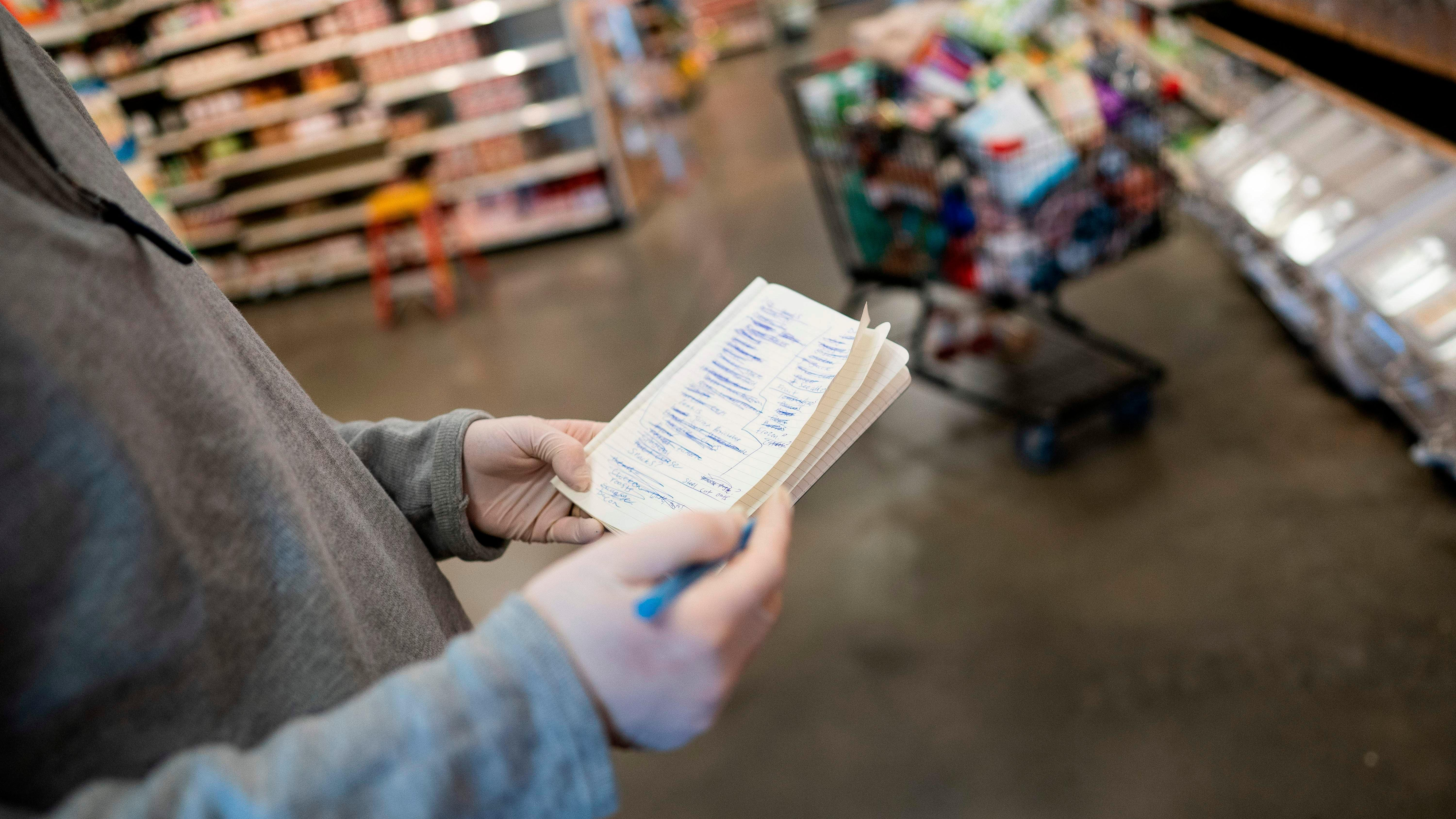What These Famous Grocery Lists Tell Us About Humanity
We can learn a lot about each other by sharing our shopping lists.
You may not think much about your grocery list. If you're like me, you might just mindlessly jot down random items in the notes app of your phone only to forget that you even made the list at all, resorting instead to aisle-wandering once you get to the store. But even those habits can reveal who we are. According to a survey we covered last year, my list-making approach correctly indicates that I'm a night owl who's fond of comedy.
Grocery lists can be an extremely personal way to learn about someone. These aren't outward-facing "what I eat in a day" posts manufactured to project a certain image. Grocery lists are private musings that lay bare our true desires and hint at the everyday life of whoever is writing them. And Lit Hub's recent dissection of Sylvia Plath's grocery lists shows how they can be kept as cultural artifacts to provide insight into well-known figures.
A look at Sylvia Plath’s grocery lists
The LitHub piece is an excerpt from Eliza Dumais' Cake Zine, an exploration of pop culture through dessert. For the next issue, she combs through Plath's diaries in which the famed author wrote not only her inner thoughts, but kept lists of groceries and recipes. Dumais connects Plath's culinary journey with her body of published work, showing that a cake was never just a cake for Plath:
We know, from the dates on her entries, that she made lemon pudding cake on the day she wrote "Lady Lazarus"—in which she grapples with her own repeated, unsuccessful suicide attempts. "Dying / Is an art, like everything else / I do it exceptionally well" she wrote, while beaten egg whites stiffened in the oven. In the process of drafting "Death & Co"—a poem as cutting and nihilistic as its title suggests—she prepped tomato soup cake, blood red and bittersweet. A signature recipe of hers, it requires, among other things, two cups of butter and one can of condensed tomato soup.
It also is indicative of gender roles at the time. In the 1950s, even celebrated writers were often confined to the kitchen if they just so happened to be women. Even while Plath is grappling with her mortality, it's important that she make a cake for her husband and write down all the ingredients necessary to do so.
Other notable grocery lists across history
Some of the world's earliest grocery lists were discovered on cuneiform tablets dating back more than 4,000 years. According to Open Culture, in 2018 Yale researchers referenced an ancient Babylonian tablet containing a list of ingredients to recreate several one-pot recipes like a beet and lamb stew. We know from this list that cooks often used animal blood as a thickening agent, a testament to the culture's attempt to use all parts of the animal.
Open Culture also got a hold of famed artist Michealangelo's shopping list from 16th-century Italy. The list includes illustrated icons so that anyone could understand what he needed. It also shows his need to infuse his skill into everything he did, even when reminding himself to pick up a herring, tortelli, two fennel soups, four anchovies, and "a small quarter of a rough wine."
A found shopping list of Galileo's was slightly more extravagant, including (among mundane foodstuffs) things like organ pipes and crystals, items that he would eventually use to create the first telescope. Hidden in some people's grocery lists are items that will quite literally change the way we see the world.
If nothing else, looking at the grocery lists of well-known figures is the ultimate exercise in "Stars, they're just like us!" After all, it's oddly reassuring to know that a modern-day celebrity like Britney Spears is shopping for the same boring stuff we all need; several of the pop star's leaked grocery lists were sold on eBay in 2015, revealing that she stocks her kitchen with milk, eggs, orange juice, soft pretzels, and "baby pizzas." These grocery lists are a reminder of what humans have had in common throughout history, no matter our stature or state of existence: We all have to eat.
